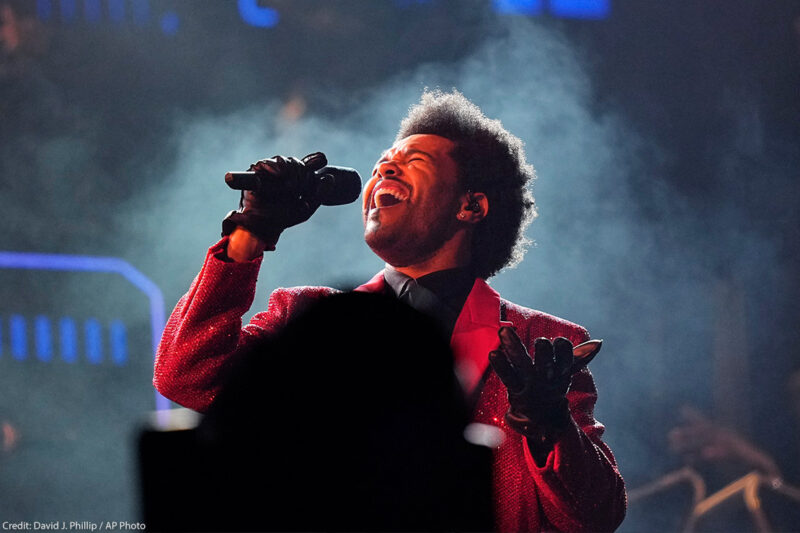The Weeknd's Music is Safe Enough for the Super Bowl, but Contraband in Prison


Incarcerated people do not lose their First Amendment rights while locked up. Yet correctional facilities across the country routinely restrict materials that prisoners can access using unconstitutional, arbitrary rules governing everything from the item’s construction to its content. We’ve fought this fight before and will continue to do so. The latest case concerns Edward Lee Jones, Jr., a Black Muslim man denied access to the religious texts and music he has requested behind bars.
While incarcerated at the Arizona State Prison Complex in Eyman, Jones requested several rap and R&B CDs and books, but prison officials banned six of the CDs and two books. The CDs include works by The Weeknd and Kendrick Lamar, two prominent artists that are widely enjoyed and can even be found at the heart of the American mainstream. The two books are by Elijah Muhammad, the founder of the Nation of Islam, the religion Jones follows. The Arizona Department of Corrections (ADC) claims these books impermissibly espouse “racist ideas” and advocate “religious oppression,” and that the music contains sexually explicit and violent lyrics that violate ADC policies.
ADC’s policies are unconstitutional. The regulations are so overbroad they have been used to effectively ban entire musical genres and minority religious texts. Prison policies like these violate the Supreme Court precedent set in Turner v. Safley, which prohibits the censorship of any materials unless there is a “valid, rational connection between the prison regulation[s] and the legitimate government interest[s] put forward to justify [them.]” In other words, a policy banning content in prison is unconstitutional on its face unless prison officials can demonstrate that the censorship is “reasonably related to legitimate penological interests.” Content containing instructions on how to build a bomb or brew alcohol are examples of what might fit that description. But there is nothing in the content of Jones’ requested books and music that affects the functioning of the prison. ADC is censoring these items for the viewpoints they express.
Censoring books and music in correctional facilities isn’t just a problem in Arizona. A Georgia jail system implemented one of the strictest bans ever in 2019, preventing detained people from possessing any books other than a Bible. Another Georgia jail restricts what books and magazines prisoners can access to only those in the very limited jail book cart. Other correctional facilities have attempted to enforce bans on books including Paul Butler’s Chokehold: Policing Black Men and Michelle Alexander’s The New Jim Crow, which reflect on issues that directly affect a disproportionate portion of the incarcerated population — people of color. It’s notable that the state of Arizona, where Jones is incarcerated, has among the highest incarceration rates in the country, including for Black and Latinx people.
Correctional facilities often ban content that relates to race for its perceived effect on operations. The state of Texas, for example, claims that “racial content” in banned materials could be construed as being “written solely for the purpose of communicating information designed to achieve the breakdown of prisons through offender disruption.” Arizona goes much further, banning any content that espouses the “superiority of one racial/religious/political group […] over another.” But as far as we can tell, the ADC’s list of banned books does not include David Duke’s My Awakening or Adolf Hitler’s Mein Kampf. Nor do ADC rules target music by white artists like Johnny Cash and Alice Cooper, whose lyrics often allude to violence. The books and music that do get banned often share one thing in common: they are produced by Black artists and writers and reflect the Black experience in America.
The irony is that by censoring books like Chokehold, The New Jim Crow, and Elijah Muhammad’s Message to the Blackman in America, prison officials actually prove their premise that this country’s criminal legal system is designed to punish Black people.
Books provide one of the few opportunities for incarcerated people to engage in self-directed education, entertainment, and self-improvement at virtually no cost to the government. The books and CDs that Jones seeks are forms of artistic expression infused with social commentary and religious texts — all of which require the highest protections of the First Amendment. Jones’ case exemplifies the ever more tenuous grounds prison officials use to ban artistic content, especially when it’s made by Black artists and addresses the Black experience. The courts must defend the rights of incarcerated people to access artistic and religious content protected under the First Amendment.


